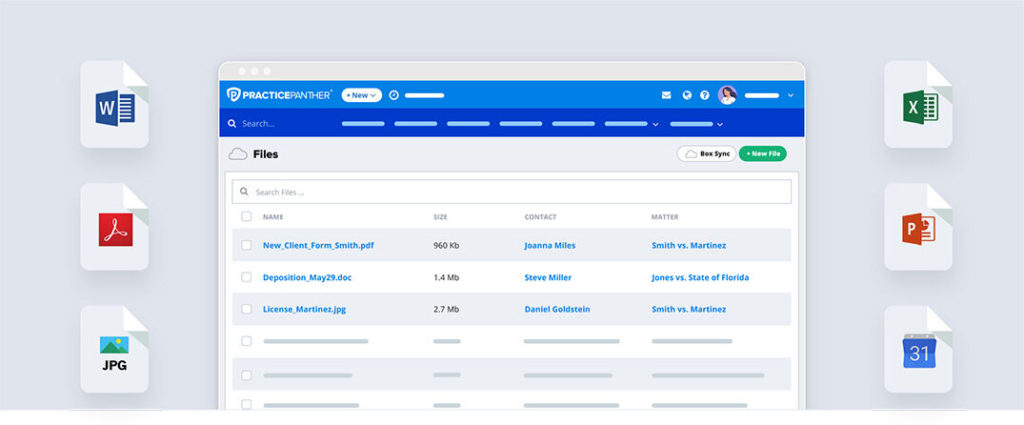No matter how skilled you are, conducting legal research can be a challenge. As the law evolves across jurisdictions, it can be difficult to keep up with all the changes and developments without the right tools, like legal research databases.
Legal research databases are an essential aspect of a lawyer’s toolkit. Paid databases used to be the only option, but now, there are a number of free tools available for law firms of any size.
What Is Legal Research?
Legal research is the process of uncovering and understanding legal precedents, laws, regulations, and other legal authorities that apply in a case and guide a lawyer’s course of action.
The process often includes case law research, which is used to identify and interpret the most relevant cases related to the topic. It may also involve research into a judge’s past rulings or opposing counsel’s track record.
Legal research never ends. It’s an ongoing process throughout the legal matter.
What Are Legal Research Databases?
Legal research databases are collections of legal forms, older state, and federal cases, and certain state, and federal administrative materials. They also have secondary sources like online versions of journal articles, legal newspapers, and treatises.
These databases may be paid or free, but the paid options are often more extensive and easier to use. They have sophisticated search engines with tools like field or segment restrictions, data restrictions, and Boolean connectors. Some also offer hyperlinks to related materials to expand your research.

How to Conduct and Plan Legal Research
A legal research plan is a strategy for finding information on a specific legal topic. The development of a systematic approach is often more efficient and accurate.
The research plan doesn’t need to be written down, but it may be helpful for first-time lawyers or lawyers in a new practice area. Experienced lawyers typically know the area of law and the available resources well, so they can plan their research process more quickly.
The legal research process is generally broken down into three elements:
- Understanding the questions and details of the legal issue
- Finding relevant laws and information to support the argument
- Ensuring that the information is still relevant
Here are the steps to legal research:
Gather Critical Information
The first step to legal research is collecting key details like the who, what, when, where, and how, which lays the foundation for a more focused and streamlined legal research process. This information then pinpoints the issue and helps you outline a framework to narrow the potential search terms and identify the jurisdiction to focus your research.
Learn and Understand the Precedent
While researching, pay attention to the geographical location of the legal issue. Is the precedent controlling in your jurisdiction or is it a persuasive precedent that’s not been adopted?
Determine Legal Sources
There are three types of legal sources:
- Primary sources: Treaties, federal and state constitutions, regulations, annotations, or case law
- Secondary sources: Law review articles, practice guides, or legal treatise
Start with secondary sources to gain background on your issue, then you can work toward primary resources to see which ones are applicable. Pay attention to the primary sources cited in law reviews, journals, and case law documents, which can give you guidance for your research.
Use a Citator
Citators ensure that you’re using “good” law by verifying a case’s authority with a cataloged list of cases, statutes, and legal sources. You can then check that it hasn’t been overruled, questioned, or made irrelevant.
Major legal databases have citator tools that flag negative history on cases to help you be sure that the information is credible.
Report Results
Compiling your legal research in a memorandum within legal case management software is a great way to keep specific research for a client organized and easily accessible. For example, you can use PracticePanther to manage documents and attribute them to a specific contact or matter.
Keeping this information in a centralized location could help you identify any gaps in your information that could prove problematic later in the case.
Generally, legal memorandums:
- State the facts of the case
- Identifies the issue
- Applies “good” law
- Predicts counterpoints
- Assesses the outcome of the case
Finding the Best Legal Research Databases
Here are some of the best paid and free databases to sort through information and develop a more efficient legal research process.
LexisNexis
One of the biggest names in legal research, LexisNexis is a comprehensive research platform with a wealth of business information and intelligence. This service requires a subscription, but there are tiered plans to suit your needs.
Westlaw
Westlaw is another major player in legal research. Also a paid subscription service with tiered options, Westlaw is part of the larger Thomson Reuters legal universe. Along with a research database, Westlaw offers additional products for legal research and know-how.
Courtlistener
Sponsored by the Non-Profit Free Law Project, CourtListener is a legal research website that covers millions of legal opinions from federal and state courts. You can search by case name, topic, citation, and more. CourtListener is updated daily.
Caselaw Access Project
The Caselaw Access Project (CAP) offers free access to all official, book-published US case law. This is part of an effort to make all published US court decisions freely available for publishing online. The earliest case is from 1658, all digitized from the Harvard Law Library collection.
FindLaw
The Findlaw for Legal Professionals division offers free online legal content, including case law from state and federal courts, legal news, statutes, and case summaries. It also has a searchable database of US Supreme Court decisions dating back to 1760, which you can search by name, case title, full text, citation, or docket number.
PACER
Officially created by the federal judiciary, PACER is a public access site where you can access docket information from federal appellate, bankruptcy, and district courts. You can pay for the service per page or per document for downloads.

Strategize Your Legal Research
Smart legal research is thorough, efficient, and accurate. Whether you use paid or free legal research databases, they’re a key component of a successful legal matter.
With PracticePanther’s law practice management software, you can organize all your legal research with their native legal document management and legal case management features PracticePanther syncs with other helpful tools like Google Drive and Dropbox for more organization and instant access from anywhere.





